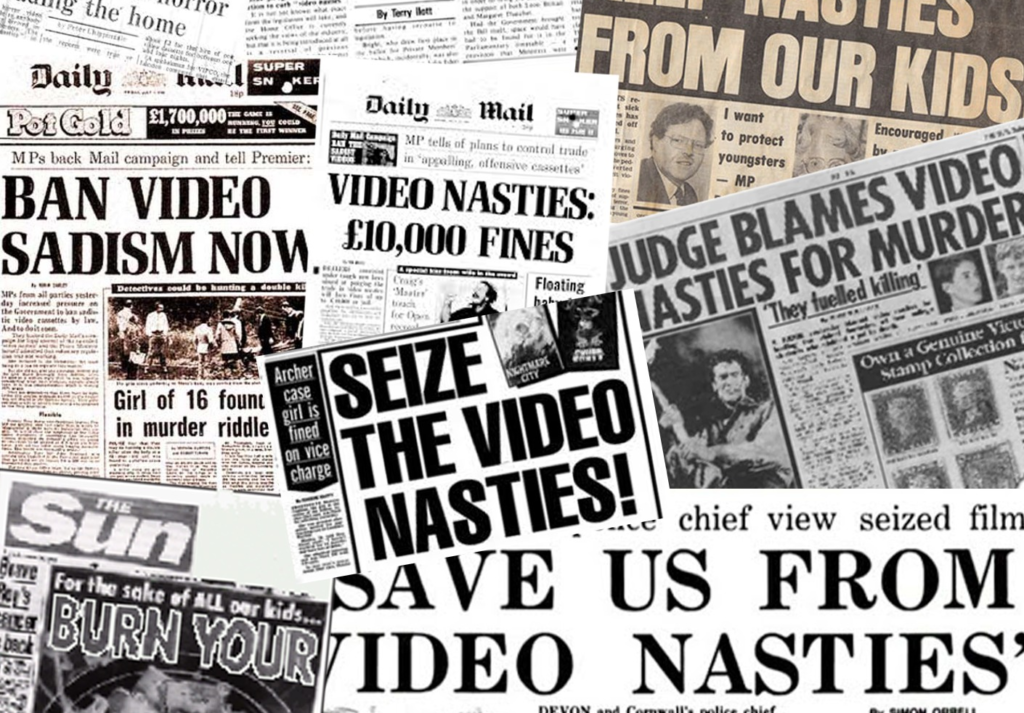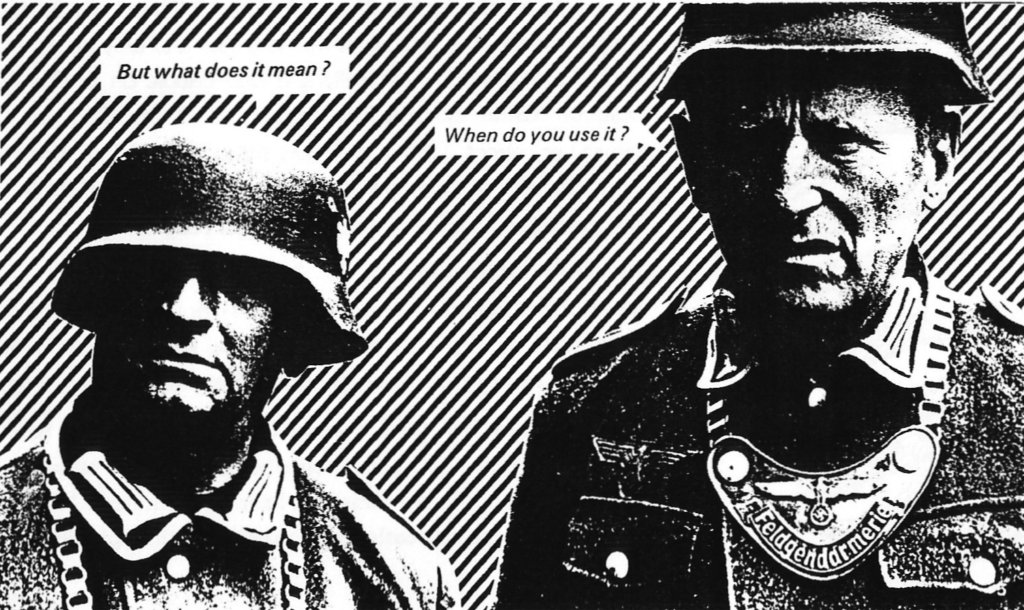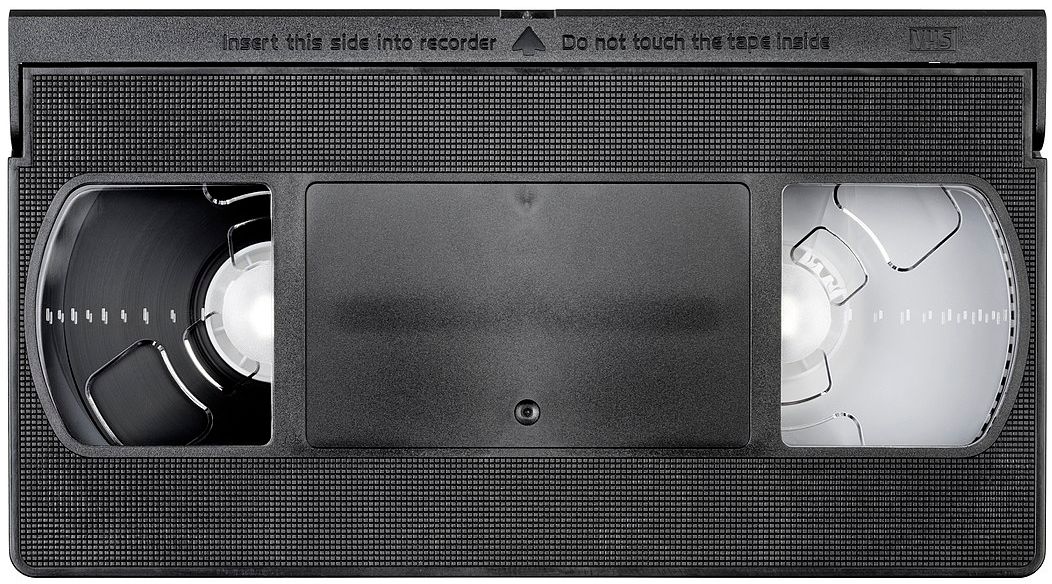Know Your Enemy: The Video Recordings Act
“A person who supplies, or offers to supply, a video recording containing a video work in respect of which no certificate has been issued, is guilty of an offence unless
a) the supply is, or would if it took place be, an exempted supply, or
b) the video work is an exempted work”
It’s just over eight years since Graham Bright’s Private Members Bill was swept into law on a wave of tabloid hysteria and public ‘concern’. Video cassettes are now the most rigorously controlled medium in this country, with a legal requirement to be vetted and censored before being seen by the public, and the law which made it so is the subject of much wailing and gnashing of teeth by genre fans.
But how many people actually know what it says? Few have ever read it, despite it being quite easy to get hold of a copy. A polite letter to your local Trading Standards Office may well be enough, though fans may be a little worried about sending their name and address to the body responsible for enforcing the law!
When you have your copy, you then have to translate the Act into English. While the booklet Trading Standards sent had explanatory notes at the start, it’s still difficult, especially for a non-lawyer like me, to wade through sentences like:
“The supply of a video recording otherwise than for reward, being a supply made for the purpose only of supplying it to a person who previously made an exempted supply of the recording, is also an exempted supply”.
So let the reader beware and I accept no responsibility for anything!

Exemptions
As the quote at the head of this article hints, certain exceptions to the law are given in the Act. The legalspeak paragraph quoted above comes from Section 3, ‘Exempted Supply’, probably the most useful bit as it also lists a number of circumstances where “the supply of a video recording is an exempted supply for the purposes of this Act”. Or put another way, how you can circulate uncertificated videos and get away with it.
Briefly summarised, the important ones are as follows:
- i) Providing a record of an occasion to those who took part in it weddings, school concerts, etc).
- ii) Giving it to someone in the business (time-coded tapes, or for conversion/duplication purposes).
- iii) Supply for use by the BBC, IBA, a cable or satellite company.
- iv) Sending it off for classification.
- v) Training for, or carrying on, any medical or related profession.
- vi) Giving it back after any of the above (the legal speak paragraph!).
and most importantly of all, worth quoting in full - vii) “The supply of a video recording by any person is an exempted supply if it is neither
(a) a supply for reward, nor
(b) a supply in the course or furtherance of a business”.
As the accompanying notes say, “A gift of a cassette from one private individual to another is an exempt supply”. This would appear to mean that non-profit copying is not an offence, but be slightly wary – if you swap a copy of ‘The Exorcist’ for one of ‘The Texas Chainsaw Massacre’, I suspect you’d still be breaking the law, as you’re getting a “reward”, albeit in the shape of a TCM tape. If the tape is blank, you’re probably ok.
I don’t think there’s a similar “not for reward” get-out in the Obscene Publications Act, so even non-profit copying of the 39 nasties that have been declared obscene will still be illegal.
Some videos are also exempt from certification. Those designed to “inform, educate or instuct”, video games, and tapes concerned with sport, religion or music, are all exempt. However, depicting sex, violence or nudity is still out – as the notes put it, in a droll way:
“The Act does not cover such videograms as those which deal innocuously with cookery, golf tuition, orchestral music and the like, but programmes…which might dwell upon the hunting and killing of animals before cookery, nudists playing golf, or an opera involving a prolonged scene of someone’s eyes being gouged out would probably not be exempt.”
I should mention that as the booklet was written in August 1985, the eye-gouging opera is unlikely to be a veiled reference to Dario Argento’s splat-art flick.

Another loophole struck me while playing ‘Turtles in Time’ on the Super NES, in which you get the nunchaku-wielding Teenage Mutant Ninja Turtle in all his un-BBFCed glory. This led me to wonder what the status of computer software is, as with the rapid advancement in storage, it will soon be possible to store an entire movie, sound and pictures, on a floppy disc. Checking in the Video Recordings Act, it defines “video work” as “any series of visual images (with or without sound) produced electronically by the use of information contained on any disc or magnetic tape and shown as a moving picture”. This would not appear to cover cartridges, such as are used by the consoles; maybe some enterprising company should bring out ‘The New York Ripper’ for the Game Boy.
Video games are generally exempted in the same way as sport, music, etc, but the same restrictions apply – they may not depict “acts of gross violence”. Now, your average computer game – or at least any decent one, I exclude those featuring a wimpoid midget mustachioed plumber – leaves more corpses littering the screen than a Schwarzenegger movie. Even in something like ‘Prince of Persia’, the hero can get sliced in two (with a beautifully sickening crunch) or impaled on spikes – so one wonders when the Trading Standards people are going to start raiding Woolworth’s and picking up those copies of ‘Tetris’. It might get them off horror fans’ backs for a while, but could you handle news reports with screen shots from ‘Lemmings’, accompanied by a solemn voiceover saying how these are real rodents plunging to their doom?
Offences
The most obvious offence under the Act is supplying uncertificated tapes. However, it is equally much an offence to offer to supply them, and even the possession of uncertificated tapes is an offence, if it’s with intent to supply them, both subject to the exemptions discussed above. Any of these offences are punishable by a fine, not greater than twenty thousand pounds – ouch – but, unlike the Obscene Publications Act, there is no provision for a jail sentence.
The other offences, each of which might land you with a fine of up to 2,000 pounds, are as follows:
- a) Supplying or offering to supply a certified video recording in breach of its classification (for example, renting an ’18’ video to someone younger). Again, the ‘not for reward’ exception applies, so you can lend that copy of ‘Bad Taste’ to your little nephew!
- b) Supplying or offering to supply restricted videos (cert. 18R) on premises either than a licenced sex-shop. I’d not expect many genre fans to fall foul of this one!
- c) Supplying or (altogether!) offering to supply (thank you!) a tape without the required labelling as to classification. This is detailed in the Video Recordings (Labelling) Regulations 1985 and is very dull, unless you’re keen to know things like the minimum height of the letters (5 mm!).
- d) Supplying or etc, etc, a tape which lies about its certificate, or claims to have one when it doesn’t.
It might seem appealing to stick ’18’ certificates on all your videos, so that you’ll be done for offence d) rather than a 20-grand one, but unless you can prove “reasonable grounds” for believing ‘The New York Ripper’ does have an ’18’ certificate, you’ll just get charged with both!
Overall, the Act seems to be fairer and better worded than I expected. It appears to be targeted, not at the average fan but at professional dealers, and given the number of rip-off merchants in that field, it may not be quite as appalling a piece of legislation as is usually thought…

